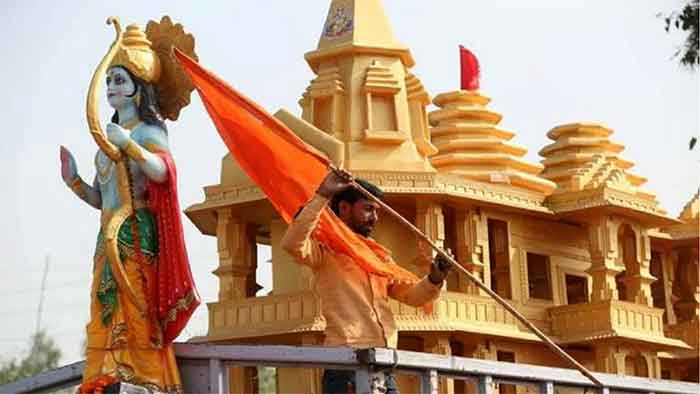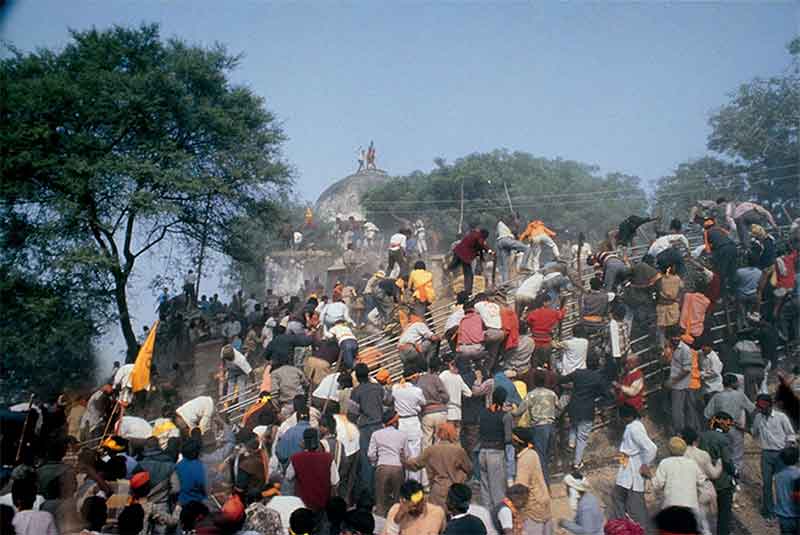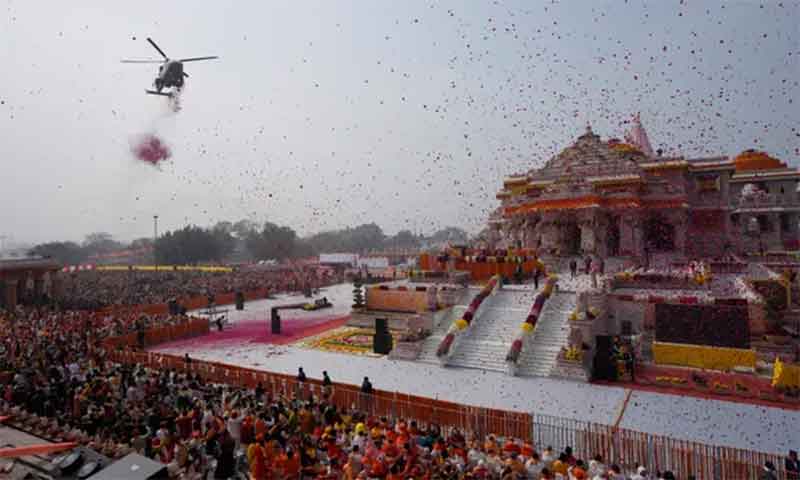
Grand foundation laying ceremony at Ayodhya is a blow to the secular credentials of India. The fact that 3 constitutional dignitaries PM, UP CM and UP Governor, tasked with duty to protect and preserve the constitution, attended a religious ceremony is attack on constitutional values. This is in clear disregard with the oath which they take, “ to bear true faith and allegiance to the constitution”. Recognising the pluralistic aspect of Indian society and the values of Indian freedom struggle, constitution makers made India a “ sovereign, socialist, secular, democratic, republic” state. Though the word secular was explicitly written via 42nd constitutional amendment act 1976 but it was implicitly established in articles 25 to 27 of part 3 of constitution. Secularism implies that state protects all the religions equally and doesn’t uphold any particular religion. It means equal protection to all religion. It sought to achieve unity and fraternity of people practising different faith and promoting composite culture of India. It ensures strict impartiality on the part of the state towards all religion. Religion is a matter of personal affair. It relates to the private domain of individual. Individual is free to practice, profess and propagate religion of their choice. State mandate is to protect this liberty and dignity of individual and not to indulge itself into any religious affair.
Pt Jawahar Lal Nehru, the first PM of independent India truly abided by these values. Throughout his life he waged a consistent struggle against orthodox social forces and tried to inculcate scientific temperament and secular outlook in nation psychology. He knew how British authorities utilised the religion for political purpose and hampered the social, political and economic development of the country. Therefore, he directed his energy to establish modern India on twin principles of secularism and democracy. His political ideas were shaped by his personal beliefs which were moulded during his childhood. His interaction with F.T. Brooks, his teacher, father’s Munshi Mubarak Ali, friendship with theosophists like Annie Besant, living with Jews at Harrow, deliberations with people from different spheres of life influenced his thoughts.
Pt Jawahar Lal Nehru was a true Machiavellian. He never mingled politics with religion. He strongly objected to Mahatma Gandhi’s quest for Ram Rajya and spiritualisation of politics. It is to be kept in mind that Gandhi thoughts on Ram Rajya were not based on religious dogmas. He was a true secularist and wanted to infuse true religious values of humanity, tolerance, individualism into politics and not regressive religious identity. But, Nehru never supported the entry of religion into political life and differed on this point with Mahatma Gandhi.
Nehru had a rational and humanistic view towards life. He abhorred religious show off, practice of rituals and believed in scientific view of life. He imbued the nation with spirit of nationalism, secularism and democracy and embarked upon the path of national progress. For him temples of modern India were scientific institutes, steel plants, research institutes, institutes of higher learning, hydroelectricity development plants. He knew that progress and modernisation will come from these and not from holding religious beliefs. For him only scripture to follow was the constitution of India. It is through this that modernisation will follow. He focussed on national development with an inclusive approach.
Political leaders of present world must learn from pt Nehru. His efforts to establish constitutionalism in Indian society must be taken forward by his successors. Vision of “New India” must take inspiration from Nehru’s vision of modern India. Post COVID-19 world is a new world. Greater interaction with technologies, behavioural change rooted in scientific norms, efforts to rebuild the economy, uplift the downtrodden from the disruption caused by pandemic, augment public health infrastructure requires consistent and progressive efforts. Therefore, present leaders must learn from Pt Nehru who build India from scratches and must embark upon his path.
Neha Mishra, pursuing PhD at CSJMU, Kanpur.
SIGN UP FOR COUNTERCURRENTS DAILY NEWSLETTER














































